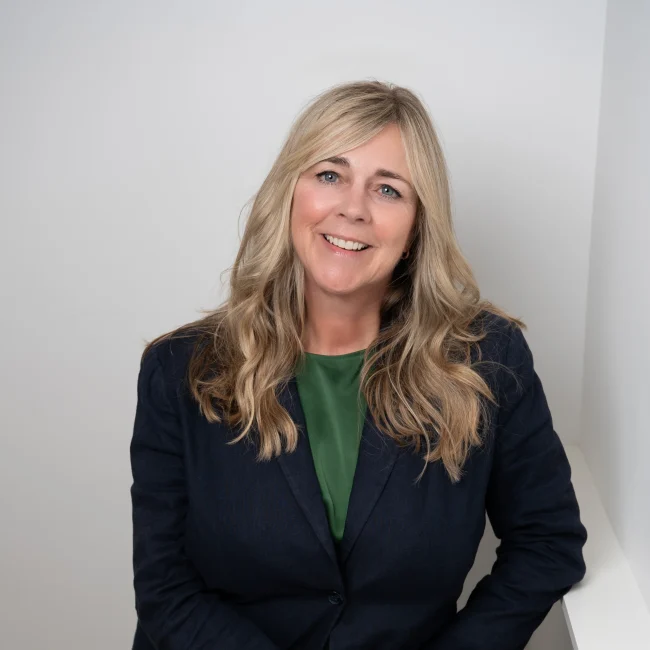Counselling and Mediation in Richmond
Supporting you through life's transitions and relationship challenges


About Me
I support individuals, couples and families to explore and strengthen connection with themselves and others.
I am a relational therapist with over 15 years experience in private practice offering a calm, confidential space for couple’s individuals and families to explore, repair and strengthen their emotional lives. My approach is grounded, emotionally focused, and compassionate.
Whether you are:
- navigating relationship breakdowns
- facing separation and loss
- adjusting to blended family life
- experiencing feelings of low self-esteem and self-worth
- going through life cycle changes such as retirement and parenting
I provide a supportive space to explore what's happening beneath the surface.
I work with issues such as low self-esteem, self-doubt, separation and loss, fertility difficulties and life transitions — helping you find clarity, confidence, and connection again.
Background
I’ve worked with Relate, supporting couples in conflict — both at the Couples and Family Clinic at Springfield Hospital, and with the Family Therapy Group at The Wimbledon Guild — helping families navigate complex transitions and emotional pain. These experiences have deepened my understanding of the systemic, relational, and emotional layers at play in our individual and family life.
Before becoming a therapist, I spent over two decades building and leading my own HR recruitment consultancy. This unique professional background gives me a deep in insight into communication, emotional resilience, and the realities of navigating change.
I offer face-to-face sessions in Richmond as well as online and telephone consultations. Whether you're seeking clarity as an individual, healing as a couple, or unity as a family, I’m here to support you with empathy and direction.
Qualifications
I hold a BA (Hons) in Integrative Relational Counselling, and I’m a registered member of:
• MBACP (British Association for Counselling and Psychotherapy)
• AFT (Association for Family Therapy and Systemic Practice)
• FMA (Family Mediators Association)
In 2023, I trained as a family mediator, supporting couples navigating separation in a way that honours what matters most - their children, their family and their future.



Testimonials
(*Names and details changed for confidentiality)
My Work
I am a relational therapist and family mediator. I work with couples, individuals and adult families who are navigating emotional and relational challenges - whether that is through a crisis, a life transition or a quiet sense that something needs to change.
The Counselling & Therapy I offer includes
Counselling and therapy - online and in person
Marriage and couples therapy and counselling
Relational therapy
Divorce counselling
Individual counselling and therapy
Work based counselling
Family therapy
Family mediation
At the heart of my work is a belief in the importance of connection - to ourselves and to each other. Therapy offers a space to slow down, reflect and make sense of your experiences. Together, we look at patterns, explore meaning and work towards greater understanding. This process can help deepen relationships, bring clarity and open up new possibilities for change, healing and acceptance.
I also offer family mediation to help couples navigate the often difficult process of separation and divorce in a way that is respectful, structured and future focused. Mediation can offer an alternative to court - a calmer, more collaborative space where you can work through practical arrangements especially those involving children, finances and ongoing communication.
I also offer counselling for mediation, a blended approach that allows for emotional exploration, helping you make considered decisions about what comes next.
What issues can counselling help with?
People come to me for help a wide range of issues. Here are a few of the more common difficulties that can be supported through counselling:
Relationship difficulties including separation and divorce
Blended families and family issues
Grief loss and bereavement
Issues relating to sexuality
Difficulties at work
Retirement and life cycle changes
Menopause
Fertility
Problems with family and school life
Exploring relationships and friendships
Feelings around loneliness and lack of connection
Anxiety and low mood
Location
I offer therapy for:
- individuals
- couples
- adult families
- family mediation
Either in person at my Richmond practice or on-line.
Sessions
I offer 50 minutes sessions for individuals, 60 minutes for couples and 90 minutes for families.

Get in touch
Feel free to contact me if you have any questions about how counselling works, or to arrange an initial assessment appointment. This enables us to discuss the reasons you are thinking of coming to counselling, whether it could be helpful for you and whether I am the right therapist to help.
You can also call me on 07767687885 if you would prefer to leave a message or speak to me first.
Some frequently asked questions
Many therapists tend to view Counselling as ‘short-term’ work; when someone has a problem that can be looked at and discussed in a clearly resolvable way. This work often requires undertaking sessions for a certain number of weeks, to explore, discover and clarify a way forward. Therapy is a word used more to describe ‘long-term’ work; discussion that tends towards substantial issues and things that might be life-changing on a deeper level.
Whether counselling or therapy works best as a short- or long-term option depends on the client though, and the difficulties they are facing. In some cases counselling can prove helpful as a continuing, longer-term option, or therapy can help resolve an issue in just a few sessions.
There’s no fixed or ideal length of time for the counselling process; it varies from person to person and will often depend on the depth of the issues they are facing. While I can work on an open-ended basis with clients, I find it is helpful for us to both agree before we start on undertaking a certain number of sessions and reviewing where we are at once we reach that point. You are able to decide how long your therapy will last, and in return my aim is to make sure therapy continues for only as long as it is of benefit to you.
It also depends on what your needs are. Some people find that after only a very few sessions they have some clarity and focus and are ready to end the therapy. Other people value the ongoing support and relationship with me and will continue to come for weeks, months, or even years. There is no 'one-size-fits-all' when it comes to therapy.
My aim is to offer you a first appointment, known as an assessment session within 1-2 weeks, this is once we receive your completed client pack back. However, waiting times will vary according to pressure on our resources, your own availability and the service you seek.
An appointment to our short term counselling, which is not subsidised, can be offered within about one week.
Confidentiality is one of the main ways in which therapy differs from many other forms of helping - for example, talking to friends or family can rarely offer the same degree of confidentiality as talking to a counsellor. Because of this confidentiality, you will find that - as you get used to coming for therapy - you are freer to talk about whatever you wish to.
No therapist can offer 100% confidentiality: there are some situations where the law requires disclosure of risk (e.g. certain child protection issues) and in common with most other therapists, there are some situations where I may not be able to keep total confidentiality. In particular, if someone tells me that they are thinking of harming themselves in a way that I believe puts them at serious risk, or if someone tells me that they are doing something that could put others at risk, I may not be able to keep such information confidential. However, breaking confidentiality is rare, and only happens after talking to the person concerned.
When you come for counselling it's important that you feel free to talk about whatever is important to you. Sometimes, you may not be clear what those issues are. Having a friend or family member with you is not usually helpful because they may have their own agenda for you. Even if this is just that they want to be supportive, or want you to 'get better', this agenda can prevent us opening issues up. When you come for therapy, you may need to explore thoughts or behaviours about which you feel ashamed or embarrassed and you may censor yourself so as not to hurt someone, or you may find that what they want you to talk about is not really what you need to discuss.
Sometimes, family/friends can even be part of an underlying issue which needs to be aired and discussed. Usually, people who ask this question are nervous about coming for a session alone, or they are anxious for the person who is thinking about arranging sessions. This anxiety is quite normal, and you will not be forced to talk about anything you feel uncomfortable about - but you do need to be able to talk about whatever is important. For this reason, I do not see clients accompanied by friends or family.
